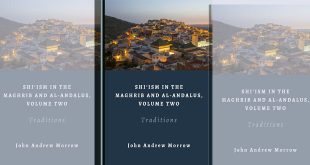Saudi authorities have reportedly defrocked a scholar and deprived him of ecclesiastical status, as a brutal crackdown led by Crown Prince Mohammed bin Salman against Muslim preachers and intellectuals widens in the ultra-conservative kingdom.
Pro-democracy activists said the Saudi Ministry of Islamic Affairs and Endowments took the measure against Sheikh Talal Sultan Bukhari, who is the imam of Mohammed bin Sorour al-Sabban mosque in the southwestern city of Taif, on Wednesday, Arabic-language New al-Khalij news website reported.
The activists noted that the measure came after Sheikh Bukhari called on King Salman bin Abdulaziz and Crown Prince Mohammed bin Salman to ease pressure and strain on the lives of ordinary people, and order tax cuts during the last Friday sermon.
Saudi Arabia has stepped up politically-motivated arrests, prosecution and conviction of peaceful dissident writers and human rights campaigners.
Saudi officials have also intensified crackdown in the country’s Shia-populated Eastern Province.
Eastern Province has been the scene of peaceful demonstrations since February 2011. Protesters have been demanding reforms, freedom of expression, the release of political prisoners, and an end to economic and religious discrimination against the oil-rich region.
The protests have been met with a heavy-handed crackdown by the regime, with regime forces increasing security measures across the province.
Over the past years, Riyadh has also redefined its anti-terrorism laws to target activism.
In January 2016, Saudi authorities executed Shia cleric Sheikh Nimr Baqir al-Nimr, who was an outspoken critic of the Riyadh regime. Nimr had been arrested in Qatif in 2012.
source:presstv
 Ijtihad Network Being Wise and Faithful Muslim in the Contemporary World
Ijtihad Network Being Wise and Faithful Muslim in the Contemporary World
